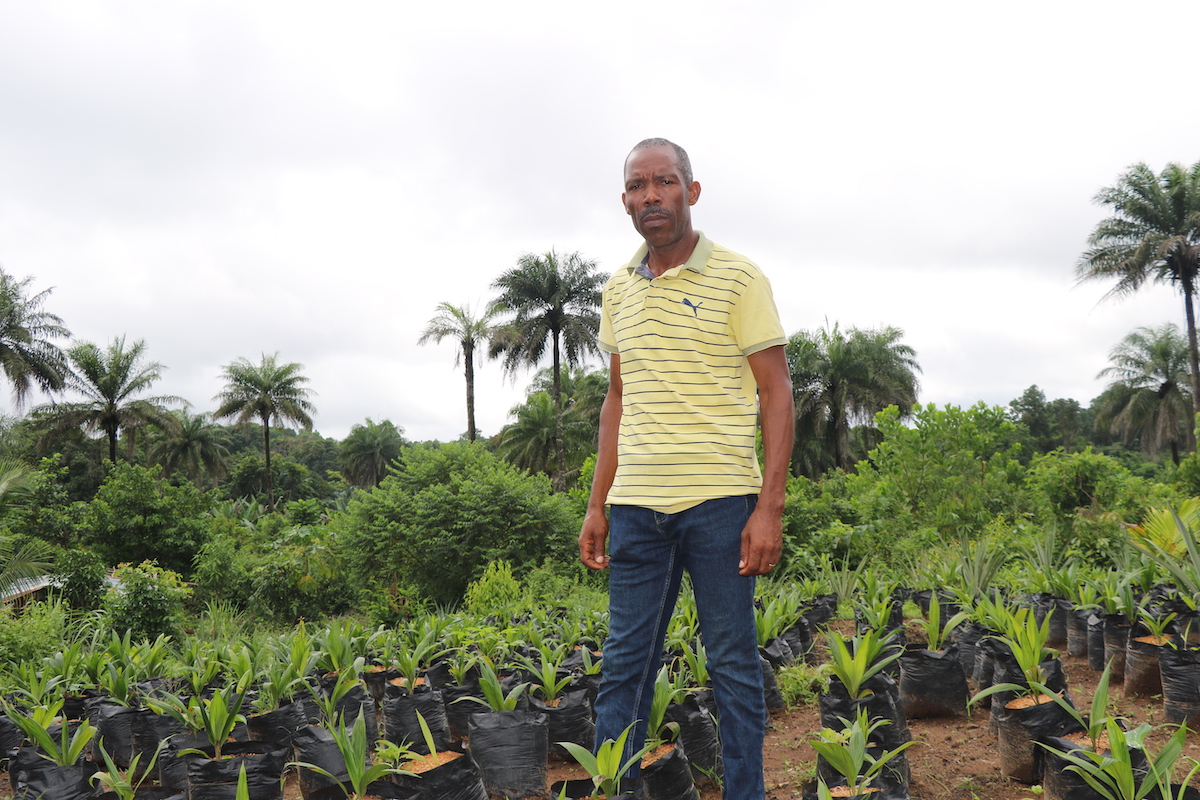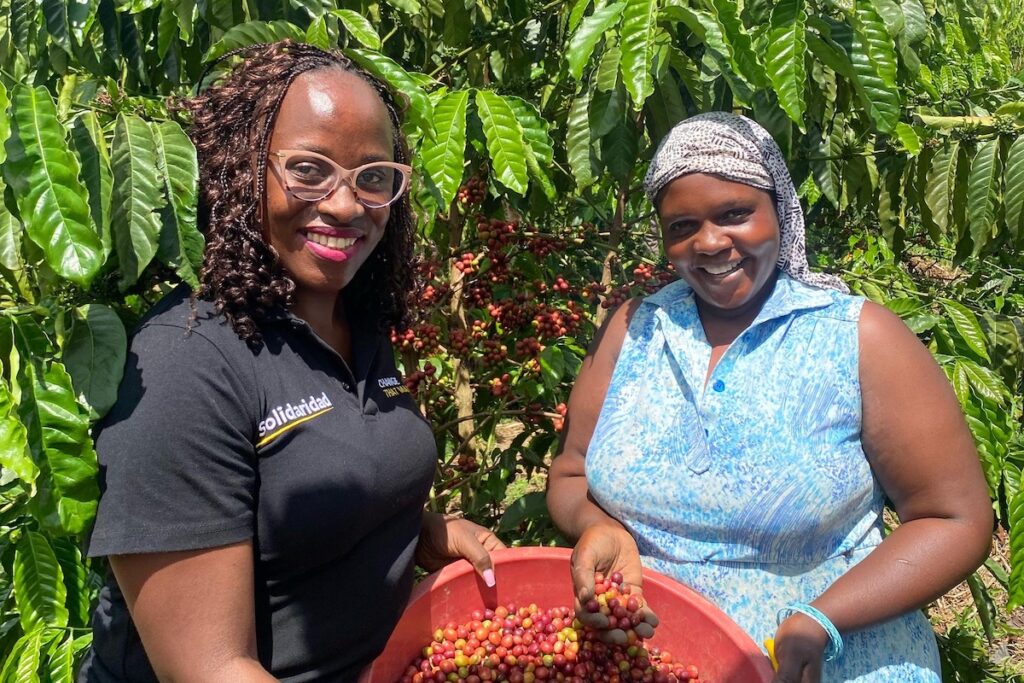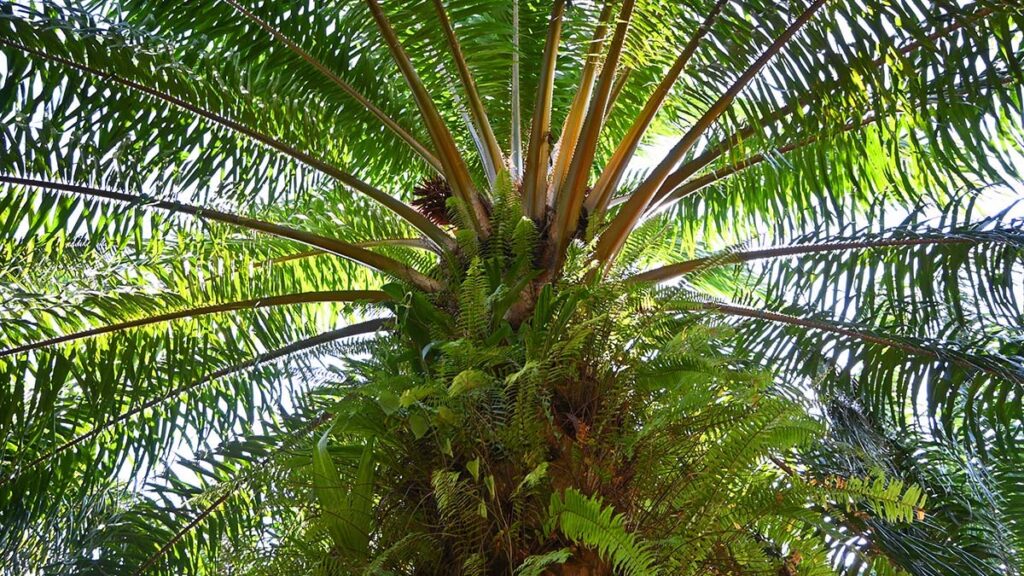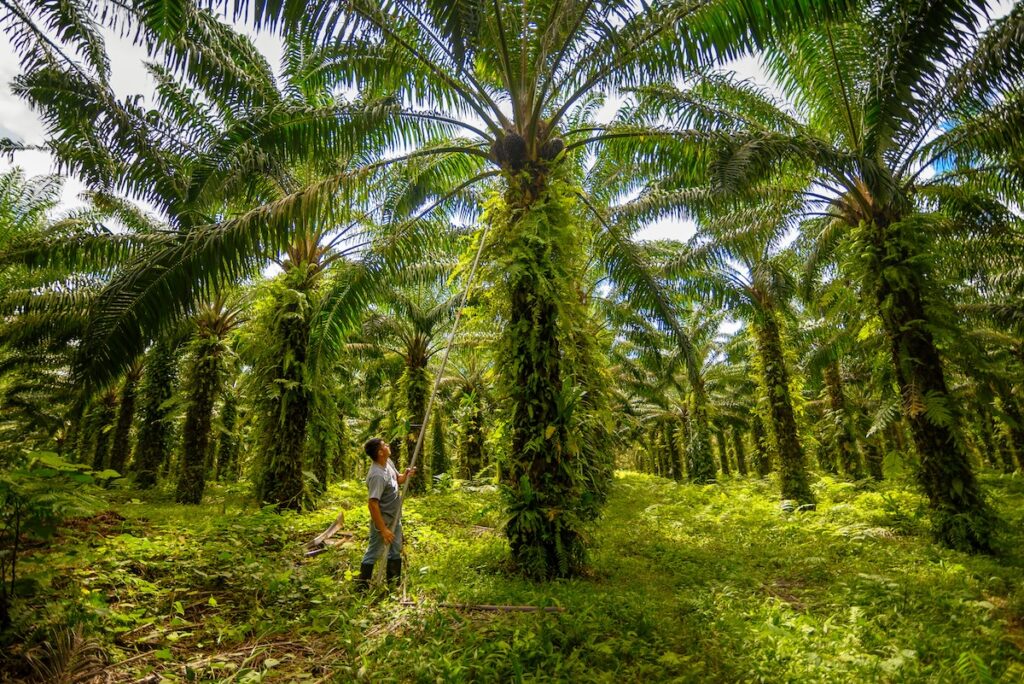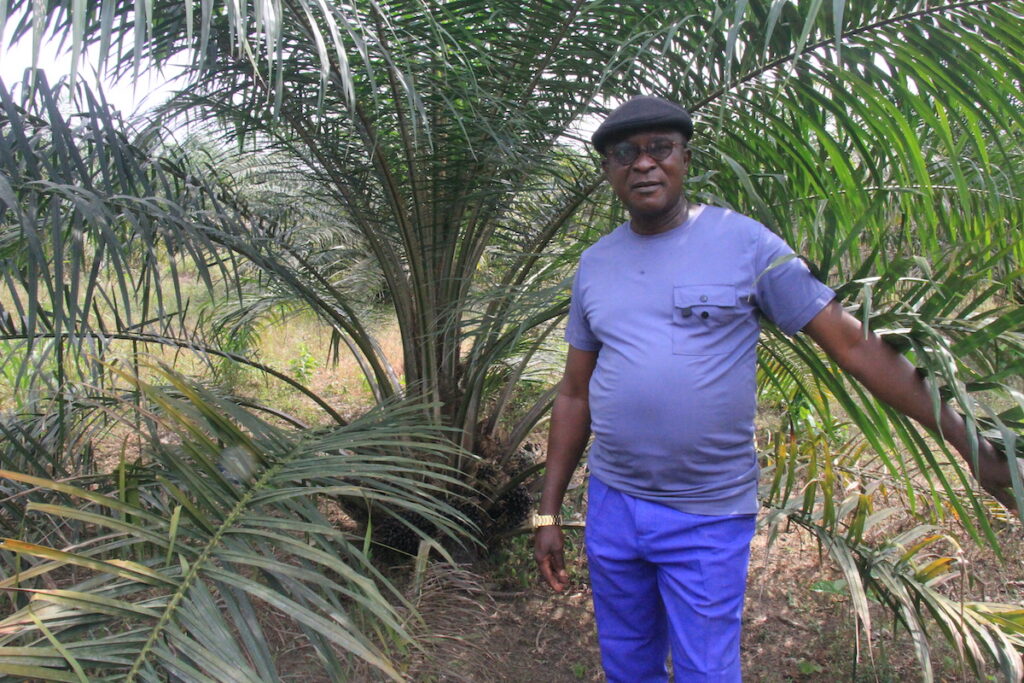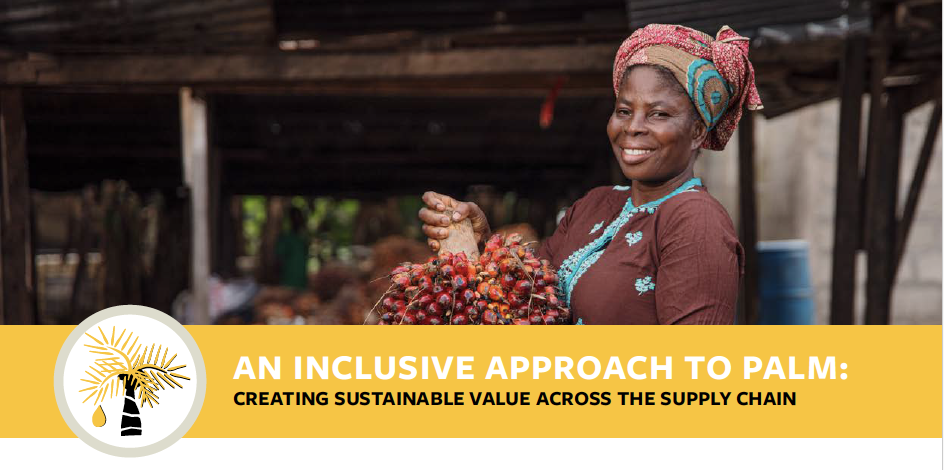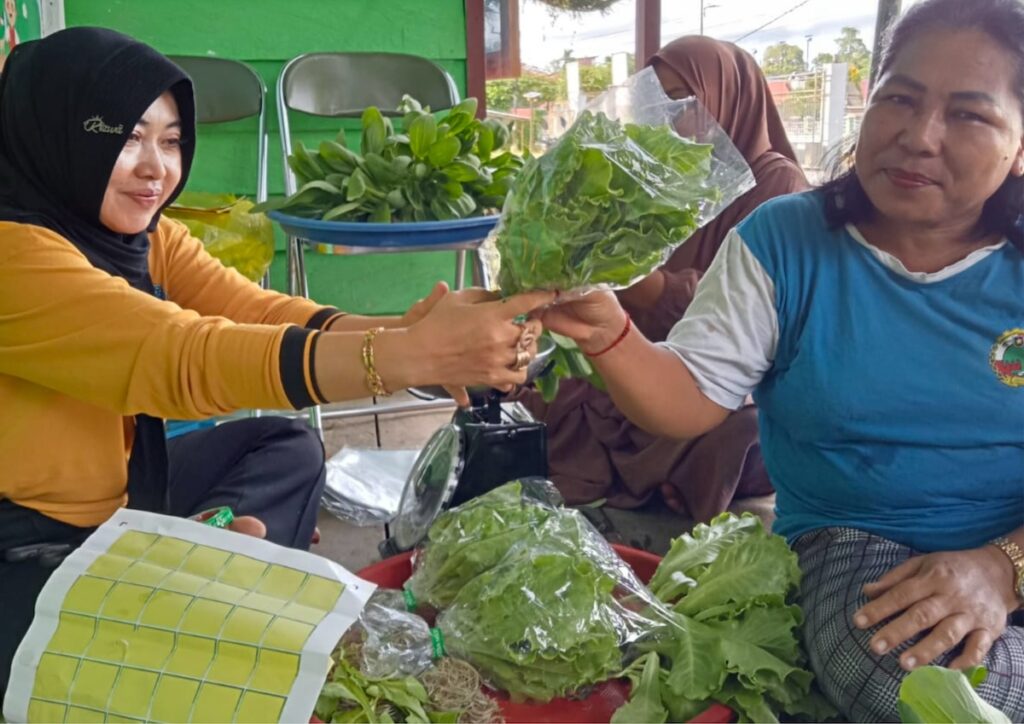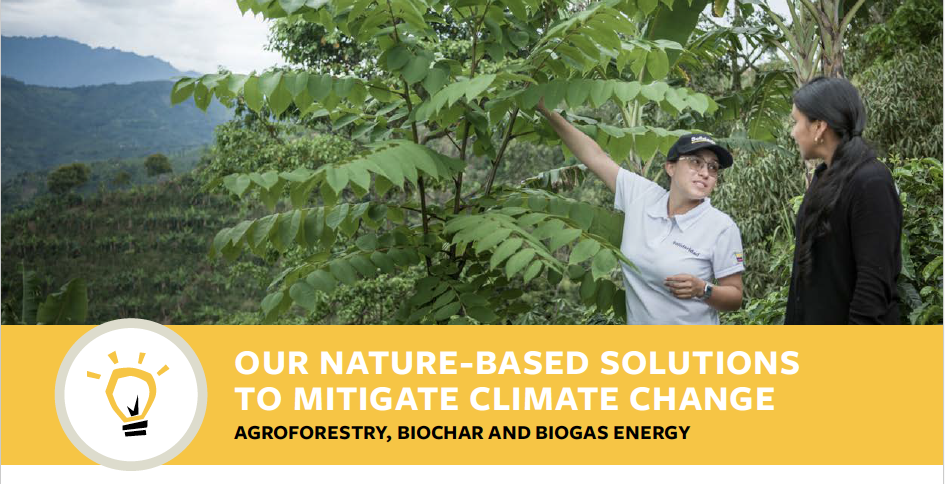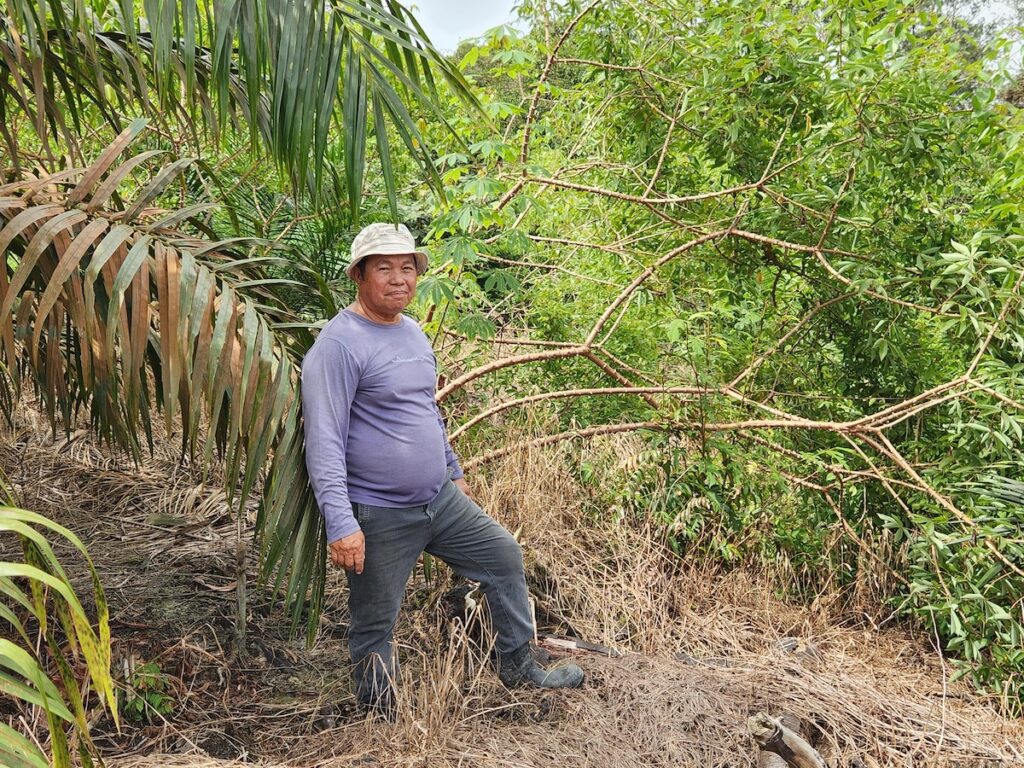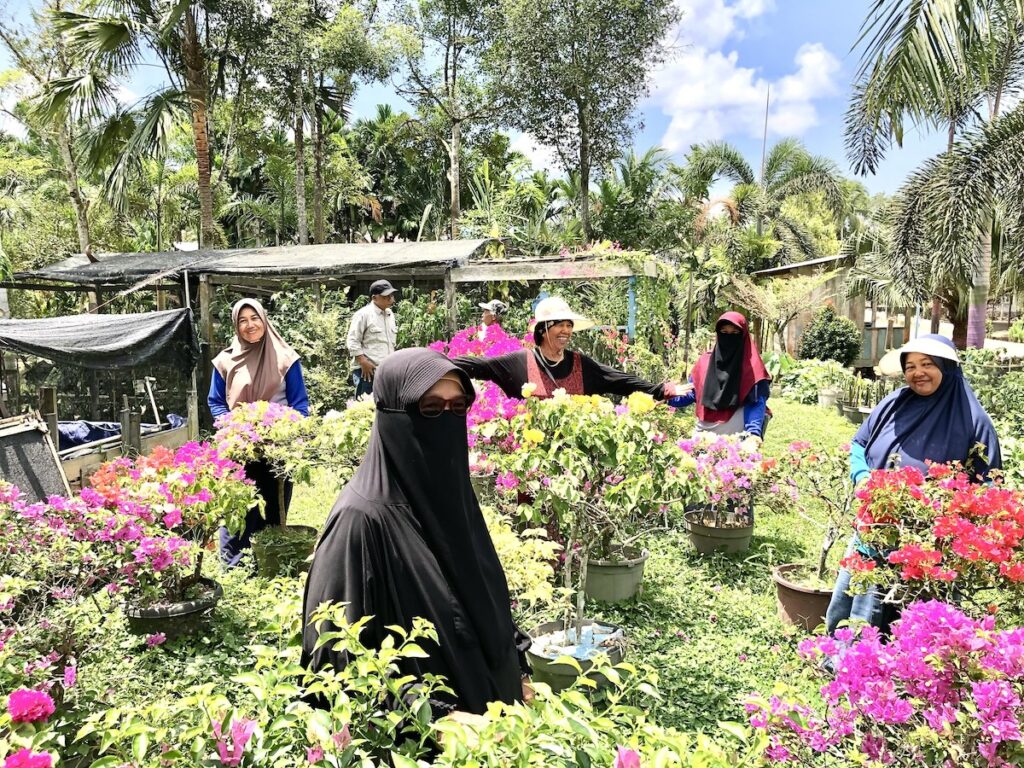With this, Bosten has transformed his Rural Community Development Enterprise, an oil palm farming venture and is now supporting many smallholder oil palm farmers in his community.
In 2020, after receiving training in best management practices (BMP) and alternative livelihood activities under the programme, Bosten returned to his community to encourage and train other farmers on how to improve their yields and plant new farms.
To step up the advocacy, the church leader complemented his religious preaching campaigns with awareness on the business case for the oil palm value chain.
“Combining the preaching of the gospel with awareness on oil palm production has been most beneficial to my congregation who are mostly farmers. It gives me joy when other farmers tell me that the knowledge I shared with them is helping to improve their yields,” says Devine.
Bosten says he has been motivated to preach about maximizing oil palm yields because he himself experienced the value of applying the knowledge he acquired from the training Solidaridad offered under the Sustainable West Africa Palm Oil Programme.
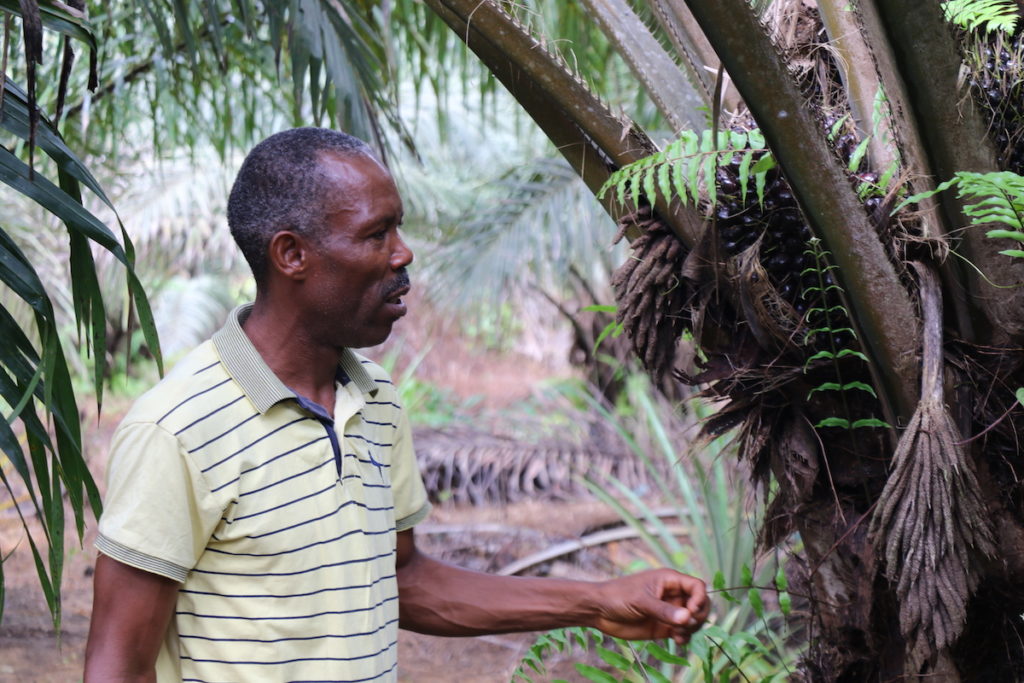
Prior to receiving the training, Bosten says his enterprise had about 10 hectares of oil palm farms, most of which were unproductive.
Our yields were very low, which affected the quantity of our crude palm oil and, subsequently, our income. But after applying the knowledge we gained from the various training sessions, we started to see a transformation. Today, all our farms are producing fruits and we now have so much to process.
Bosten Devine, Church Leader and Oil Palm Farmer
He says, on average, his enterprise now produces 151 litres of palm oil weekly. “Previously, we were not even producing half of that quantity,” he adds.
Providing farm services to more farmers
Aside from encouraging farmers to apply the knowledge on best management practices, the change in yields propelled him to start providing farm management services to oil palm farmers in his community at a fee.
From a humble beginning of five farmers, the Rural Community Development Enterprise Bosten operates now has 20 permanent farmers and provides support to more than 25 other farmers, including youth and women.
“The farmers we provide services to are all experiencing some transformation on their individual farms. The successes are a direct outcome of the training provided by Solidaridad,” Bosten says.
Engaging in alternative livelihood activities to generate additional income
He indicates that there has been a significant increase in his income due to the improvement in production, creating an avenue for investment in other alternative activities.
The enterprise has added honey, groundnuts and citron production to their oil palm farming.
Bosten says his organization was considering setting up a cocoa nursery in addition to their oil palm nurseries for additional income. “We have plans to plant some of the cocoa on our farms, but a large portion will be sold to farmers for an arranged fee,” he adds.
More smallholder farmers now own oil palm farms
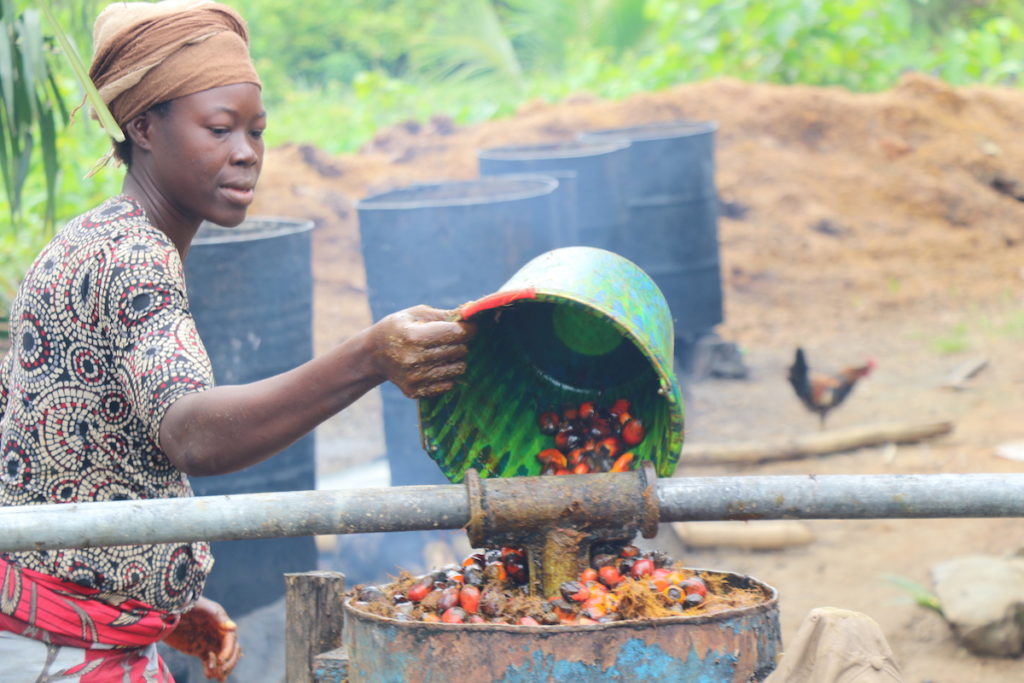
Before the implementation of the Sustainable West Africa Palm Oil Programme, oil palm farming in Liberia had largely benefited big concessionaires with huge farms and machinery. These corporations are owned by companies based in Asia, Europe and the Americas and employ local farmers to work on their plantations.
Cyrus Saygbe, Solidaridad Oil Palm Programme Manager in Liberia, says as of July 2021, the programme had registered and supported more than 7,800 smallholder farmers who are now producing on their own farms.
Many of the farmers who have benefited from the programme have been able to improve their living conditions and that of their families. We are happy that our interventions have brought about positive impacts in the lives of smallholder rural farmers in Liberia.
Cyrus Saygbe, Solidaridad Oil Palm Programme Manager in Liberia
The Sustainable West Africa Palm Oil Programme, which ends in December 2021, has since 2019 supported smallholder farmers in the Bomi, Bong, Grand Bassa, Lofa and Nimba counties of the country.
Implemented also in Côte d’Ivoire, Ghana, and Sierra Leone, the programme seeks to contribute to the transformation of the oil palm sector in West Africa, increase incomes of smallholder farmers and processors, create jobs, and generate economic growth.

